Paul Jay is asked about his personal identity, the climate crisis, and the war in Ukraine. Colin Bruce Anthes interviews Jay for “The Bridge”, episode six.
Colin Bruce Anthes
Canadian-born, Paul Jay, is an anti-establishment media titan and a Gemini Award-winning documentary filmmaker. He spent five years as the Chair of the Hotdocs Canadian International Documentary Film Festival but is probably best known for his work in news media. He was an executive producer of CounterSpin, a CBC program debating the news of the day. He founded The Real News Network and spent ten years as its CEO. He was an executive producer on The Empire Files with Telesur and is currently the founding CEO and host of theAnalysis.news, doing in-depth interviews of political analysis.
When Julian Assange was dragged by the police from the Ecuadorian Embassy, he was clutching a book by Paul Jay and Gore Vidal. At the heart of his work is a refusal to accept McCarthiest framings that take capitalism and imperialism for granted and an insistence on giving coverage to the alternatives. Paul Jay, thank you so much for being here and welcome.
Paul Jay
Thank you. You said the word titan; it is highly exaggerated.
Colin Bruce Anthes
Well, I’d like to begin—
Paul Jay
And as far as mainstream media in Canada is concerned, at this time, I don’t know that I exist. Never mind being a titan, but go on.
Colin Bruce Anthes
Well, we’ll jump on in, and we’ll talk a little bit about the contrast between your work and some of the stuff that might be considered mainstream in some ways, which I think is, for me, a very inspiring contrast. Let’s begin by how you get into it because you actually don’t start by jumping right into becoming a filmmaker and getting into news media. Can you talk a little bit about what you were doing before you found yourself in that career and how that path carved its way for you?
Paul Jay
It was really accidental. I kind of stumbled from one thing to another. I always, I guess, had a desire to change the world. As I got into my late teens, I found the more I listened to that voice about living a life with meaning, the happier I was. If I diverted from that, I wasn’t. So the idea of living a more meaningful life, which for me meant fighting to change the world for the better. I mean, it sounds kind of vacuous, but it was more specific. I grew up and became politicized during the Vietnam War. When I was 12 or 13, I remember there was the Bay of Pigs, and I thought the world would come to an end. There was the assassination of [John F.] Kennedy.
I grew up at a time which was impossible to— I guess a lot of people did, but to be in denial of the effect world events had on our lives. It was very personal. I grew up in a fairly political household. I was reading newspapers when I could read. I think when I was about seven or eight, I wrote a letter to Prime Minister [John] Diefenbaker because I’d read in the newspaper about a famine amongst the Inuit, in those days called Eskimos. There were hundreds, maybe even thousands of people dying of starvation. I wrote Diefenbaker a letter saying, why aren’t you doing something about this? I got a letter back from some hack saying the Prime Minister is very happy you’re concerned. Be assured the Canadian government is doing everything necessary. If you want to, you should go donate to your local Church. In some ways, that was the beginning of a radicalizing process for me because whatever age I was, I thought that was bullshit.
As I got older, I took the threat of nuclear war very seriously, and I was bored to death with school. I kind of hated it. Also, I never thought I’d live to see 21 years old. I quit school when I was legally able to at 16. I went to an experimental school for a little while, but nothing serious. So I didn’t go to university because I thought the world was coming to an end. I drove a truck for the post office for three years. I was a carmen mechanic on the railroad for five years and got involved in trade union politics. I was around the whole anti-war political movement. I started to learn more about history. It was remarkable to me how little I knew about real history, both in terms of the creation and formation of Canada or the U.S. Obviously, it’s a long story, but in short, at this experimental school, somebody gave a camera, donated a camera, I made a little film, got interested in filmmaking and eventually got into making documentary films.
Colin Bruce Anthes
It’s very interesting. I’m jumping ahead a little bit, but do you see parallels between— for instance, now I know a lot of people are not having kids because they feel that with the threat of climate change, and of course, recently the amped-up threat of nuclear war, which was always a little more present than we thought it was. Do you see parallels between people who are of that age today and your own childhood and coming into adulthood?
Paul Jay
Sure. In some ways, it’s every bit as scary now. I think the nuclear threat was more overt when I grew up. Although, I think a lot of people now are in threat of nuclear war, a real denial because it’s very threatening now. The Cuban Missile Crisis was a very specific moment. But growing up in a time of climate change, who knows what world kids are going to grow up in.
Now, personally, I got nine-year-old twins. I’m all for having kids. We need as many humans as we can get. Especially if we can get humans that care about the world. I hope and think my kids do. I think their identity— and I’ve tried to create an atmosphere, and my wife too, where their identity is wrapped up in caring about the world. So I certainly wouldn’t say don’t have kids because of what’s happening. One way or the other, we have to try to make what we can of human civilization.
Colin Bruce Anthes
Yeah, absolutely. I wondered if the fact that you had a background first going straight into the jobs market, being on the ground floor as a worker, and also the fact that you have dual citizenship, you spend a lot of time in Canada and the United States. Does that give you a little different perspective, do you think, on the world of the news or the world of mainstream media?
Paul Jay
Well, let me deal with the first one first. I think having worked, I had two tracks available to me. If I had stayed in school— I came from an educated family, not at all rich, but okay. I could have gone to university. Whether it had been filmmaking or something else, it wouldn’t have been very difficult for me to go down a professional track, but because I quit school, I wound up working for the post office and working on the railroad. I didn’t have professional jobs, at least then, available to me. The working-class culture is a completely different culture. People don’t get it. If you haven’t worked in a big factory— I worked in a punch press factory in Windsor, and I worked on, as I said, the railroad. If you haven’t worked in the working class, you do not get how different it is. I would say as much as there is a difference between the U.S. and Canada, the difference in culture between the working class and the middle and upper classes in Canada is perhaps more. It affects identity and everything else. So that gave me quite a different perspective.
Yeah, sure. Following U.S. politics and living for some time in the U.S. and getting a better handle— when I was in Canada, I would say the largest part of my Canadian identity was being anti-American. The Vietnam War— I see people whose obsession in the U.S. is attacking the Democratic Party. I’ve said to them, well, you’re disillusioned because you were illusioned. You once thought the Democratic Party was something. I grew up at a time when the Democratic Party was the party of war. They were the Vietnam War party until it was [Richard] Nixon but during Johnson’s time. So living in the U.S. changed my sense of Canadian identity. Also, in terms of my political evolution, I became less concerned about the Canadian part of my identity. I didn’t adopt an American identity by any means, but I have become far less interested in national identity altogether.
Now, it’s funny, I was just having a conversation with a young woman who works with me on theAnalysis. I did an interview with a Ukrainian activist. This young woman I’m talking to really objected to something I said. I’m talking to Yuliya Yurchenko, and I’m saying, why on earth would you fight and have people fight and lose their lives to keep Donbass in Ukraine? I don’t understand it. If the people of Donbass want to be part of Ukraine, well, then have a referendum. If the Russians invade, well, then let them organize against the Russians. Why should thousands of people die for Ukrainian sovereignty? I don’t get it. Fight your own oligarchs. I’m not saying there isn’t a time— if some fascist external force, and there are some aspects of that to the Russian invasion—
Colin Bruce Anthes
Sure.
Paul Jay
You have to defend from being in a police state, but to defend the national identity— and I said in the interview, I said if the United States invaded Canada, this Canada, not a progressive Canada. If they invaded Canada because we had elected a really progressive government, okay, I’d fight for that. I wouldn’t fight to defend this Canada. Go ahead and take us over and make us a State. Give us the same electoral College votes as California, and we’ll get to decide who the President is.
My bigger concern is climate change. My bigger concern is nuclear war. To make a thing out of sovereignty— and it really hit me in this conversation with the Ukrainian activist. Sovereignty, as it is, it’s very important when you own stuff. When you’re a class that owns media, minds or this or that— and that being said, in Canada, the Americans already own more stuff than Canadians do. That kind of sovereignty, capitalist sovereignty, matters to the elites because that’s how you assert your ownership. If you work in a factory or even an office, how different is it between being in Toronto or being in New York?
So it’s not that I don’t value things about Canada, but should people in their thousands or tens of thousands die for that? Let’s organize a general strike against the occupation. I’m not like a total pacifist, but let’s not die for the elites.
Colin Bruce Anthes
Right. You would say that the fact that you had your own national identity dwindle as a response to being involved in two different countries, perhaps, gave you a perspective on national identity and the problems with it around the world? Would you say that perspective comes from your own experience of having a dwindling national identity?
Paul Jay
I might have come to that conclusion anyway. In fact, maybe I kind of was. Even the fact that I moved to the U.S. because I thought that’s where, in terms of what I was doing in media, but politically it was kind of more important because of the importance of what goes on in the U.S. So maybe I was already coming to those conclusions, but it pushed it further.
I think once you start to see things from the perspective of class, when you start to understand that the history of Canada is not a bunch of wise men that cared about the people, built railroads, built the country and created this wonderful country of equality and freedom and liberty. Once you understand that, that’s bullshit. The country was founded on genocide against native people. The super-exploitation of Chinese people to build the railroads. The role of Canada, in terms of supporting U.S. imperialist adventures around the world, once you really start to get the history of Canada, then you have to think about, well, what is this nationalism? So I would say the deepest thing embedded in my psyche about nationalism was the Toronto Maple Leaf hockey team, and they did a good job of demolishing that, so I wasn’t left with much.
Now, there’s no doubt— I’m from the Canadian people, and I have a connection with that. It’s sort of part of the core of my psyche. It isn’t anything about this Canadian government or flag. I’ve told my kids they don’t have to stand when they sing O’Canada in school. When we were in the U.S., I told my kids and the teachers that if my kids don’t want to, they’re not standing and saying the pledge of allegiance. I did that not only because I object to it, but I want the kids to think about, well, what the heck is this pledge of allegiance to the flag and O’Canada? What is it we’re being asked to be loyal to?
Colin Bruce Anthes
In some of the past interviews, we talked a little about Canada’s role and financiers being involved in, for instance, the coup in Chile. Of course, more recently, the Canadian government has been funneling weapons to the Saudi Arabian government committing genocide in Yemen. So this idea of the perfect peacekeepers of Canada sometimes gets propagated around the world. It really is pretty mythological, and it has been from its origins, as you were saying.
I also wondered if some of the more positive aspects of Canada having, for instance, single-payer health insurance and looking at how in the United States, of course, in the middle of a pandemic, even with the Democrats having total power, not even getting a public option on their healthcare system. Do you look at those things and go, wow, some elements of the American system look particularly insane because of the Canadian perspective?
Paul Jay
Well, I think the thing to understand about the difference between the U.S. and Canada is, I think, 80% of Canadians live in cities or near big cities. We’re very urbanized. About 10-15 years ago, there was a very interesting study, I think, from Pew comparing Canadian and American values and opinions about things. The study came out, and the title of it was Two Countries Headed in Different Directions. Well, somebody went and had another look at the data, and they compared American big cities to Canada, and it was almost identical. It’s rural America and the suburbs that are further away from the bigger cities; in general, they’re the ones that have headed in a really different direction. To some extent, it’s because of the destruction of the public education system. It’s the deindustrialization because of globalization. It’s the fact that the money behind the Democratic Party, sections of the elites, never gave a damn about those people. They didn’t need them for a long time to win elections; when they did, it was too late. So the real difference is the urban-rural split, I think, in attitude.
You go to New York, and honestly, there are certainly sections of New York and schools in New York that are better and more progressive than Toronto. I mean, Doug Ford wouldn’t get elected in New York City. Of course, he wouldn’t get elected in Toronto either. Rural Ontario plays a similar role.
Colin Bruce Anthes
Perhaps there is some degree to which the analysis of Canada versus the United States is something that is, you could say it’s manufactured in a particular direction, or we aren’t looking at the role that big money plays as putting everything on the people. It’s not necessarily a difference between people. It can be power structures. It can be the different districts, as you say, who’s got the money and who’s got the power in a given circumstance.
Paul Jay
Yeah, we have single-payer health care. Being anti-American and having single-payer health care often gets described as being the Canadian identity. The fact is, I think it’s one in five kids in Toronto who live in poverty. The hospitals are terribly underfunded now. The schools are underfunded. My kids’ elementary school doesn’t have a librarian anymore. They don’t have an art teacher. We lived in New York for a few months, and they had an art teacher and a librarian in their New York school. So even with single-payer, generally speaking, we are more for socialized solutions. As I say, I think that’s an urban phenomenon more than almost anything.
If Canada had as strong a rural vote, well, that’s how, as I said, we got Doug Ford. Even take the war in Iraq, if Quebec hadn’t been so against Canada’s participation in the war in Iraq, and if you just went on Canadian public opinion, we would have joined in on the war in Iraq. It was Quebec that kept us out, and they had their own reasons.
The basic problem is that the decay of capitalism, global monopoly capitalism, and the parasitism of it is in an advanced stage. There’s no country immune to it. The number one issue right now is the climate crisis. Canada is a great criminal on this front. Canada is one of the worst actors on the global climate stage. What’s our nationalism about when it comes to that? Again, I don’t blame— it is about structures and systems. As Canadians, if we want to talk about a distinct Canadian identity, we better face up and live up to who we are in terms of climate.
Colin Bruce Anthes
Your work in media has always had both a focus on what’s happening right now and then what is a systemic critique. You always look at the environment in which these actions are taking place. It’s not just and this, and this, and this. Was there a point at which you realized that you needed both of those things to make sense of the world?
Paul Jay
Boy, a point? Yeah, reading [Karl] Marx probably. Marx did the same thing. Marx used to write for a newspaper in New York. One of the most widely read papers in New York. In fact, I think it was the number one paper in New York. He used to do commentary on events with historical materialism, with historical analysis from the point of view of class. If you want people to understand the underlying principles of how to understand class and the world, you really have to enter it through people’s experiences and the events around them. That’s exactly what Marx did. Marx analyzed things as they were happening, whether it was the Paris Commune or, you name it, and in the context of that, he gave the historical analysis.
The thing I’ve been kind of intrigued with in trying to explain this so people can get it is that how does any individual understand who they are as a person if you don’t get how the society came into being? Clearly, when you’re a baby, one, you don’t get to choose where you’re born. You don’t get to choose what class, family, or country. You’re born into a set of existing circumstances that shape you. Of course, media plays a big role in that shaping. If you don’t understand how that society came into being, then how on earth can you understand yourself?
So I’m peeling away and trying to understand who I am. I’m peeling away the layers of identity that are simply false and inconsistent with the actual historical experience. One of the great crimes, if you want, of mainstream media and the school system is that there’s practically no understanding of history. To the extent that there is, it’s a ridiculously, at best, superficial narrative. From a class point of view, well, there is a class point of view, obviously. It’s the narrative of the elites, but they would never own up to that.
Colin Bruce Anthes
One of the things that sets your work apart, I think, from a lot of the other outlets, not just in terms of big corporate media, but also a lot of the stuff that we see in so-called independent media, which sometimes can be more corporate than the corporate media. You actually go into a lot of the people who are major game-changers, who get almost no focus. We tend to focus on celebrity politicians and pundits. A lot of the big movers and shakers are actually people like Bill Black or Bob Moses, people who are working on nonprofits, community activists, people who prosecute white-collar criminals, people who do research and shape policy, and you do in-depth conversations with these people who understand the issues in a way that is so much more hands-on than almost anything I see on other media outlets. Can you talk a little bit about your general philosophy of how you delve into the issues, who you look to delve into the issues with, and where you try and find your starting points?
Paul Jay
Well, I have a kind of ongoing thing in my head of trying to analyze the world. From the point of view of trying to communicate what are the key points of change and hopefully help some people understand it. A lot of my interviews are probably too in-depth and too long for a lot of people, but it helps work out the analysis, and then I can try to popularize it in different ways. My own curiosity leads me.
So, like with Bill Black, his historical experience of prosecuting white-collar crime is great in fleshing out how this system engenders such corruption and criminality. I’ve gone after him on this, and I don’t think he actually answers why. Why is this corruption systemic? I don’t know if he still, but he did always think certain kinds of laws could be passed that would mitigate Wall Street crime and banking fraud. You have to ask, well, okay, but why aren’t they being passed? Why is it that even the laws that exist are barely implemented? It always boils down to the question of who owns stuff. You got to get into the evolution of ownership and how as we produce, people relate to things. Once you have such concentration of ownership and you get thus such concentration of political power, well, of course, you can’t pass any laws that are actually effective.
Now you used to have, for a time, and then this is, I guess, FDR and the New Deal is mostly associated with this, a section of capital that saw that you really do have to restrain its excesses if you want the system to survive. That voice, you could say capitalist systemic reason, has been greatly, greatly marginalized to the point that it almost doesn’t exist to the point where they are facing a catastrophic climate crisis that is going to demolish their own system. They thought they had global supply chain problems during a pandemic. Imagine what those supply chains are going to look like when hundreds of millions of people from the South are trying to move North. Within 10, 15, or 20 years, whole sections of the globe are going to be unlivable. It’s not even in the discourse. The IPCC [Intergovernmental Panel on Climate Change] report, which I’m told by a lot of the scientists, even some who are involved, is quite conservative in its predictions. The predictions were apocalyptic, and those were conservative.
There’s a report that just came out a couple of weeks ago. In the next five years, there’s at least a 50/50 chance and maybe better that at least one of those five years, we are already going to hit 1.5 degrees global warming, above the pre-industrial average, like in five years. By 2033, and this, again, may be wrong, we will hit 1.5 as the global average. One point five is a disaster. I mean, look at the heat waves now in India and Pakistan and the flooding and forest fires in North America and all around the world. We’re only at a 1.2 global average. So imagine what 1.5— and people are talking about 1.5 as though it will be okay. Not only is 1.5 not okay, but 1.5, you’re on the way to 2, and you probably aren’t going to be able to stop. This existential threat facing us and the media is where? This is beyond a level of corruption. If we look at it just as a question of corruption, you can’t get at what real solutions look like.
Let me tie these two things together. Can you imagine a solution to the climate crisis without central planning?
Colin Bruce Anthes
Pretty high.
Paul Jay
The marketplace is absolutely on its own, obviously, and it hasn’t. Obviously, it is not going to deal with the climate crisis. Without central planning and assertion of public interest, it’s obvious we’re not going to deal with it. This goes beyond the question of, well, the system’s kind of okay, but there are corrupt actors that need to be restrained, in every field, but with climate being the most critical.
Although, I have to add nuclear weapons to that, too, because it’s a very similar story. This class that’s in power is beyond dealing with these things because as individuals, their identities and how they earn their living, they are locked into this silo that money-making is what life is about. Yes, the world is probably going to shit. We’ll probably be okay because of our money. There’s nothing much we can do about it anyway. So the hell with it. Let’s make money and enjoy it and make sure at least my kids will probably be okay. Who knows what will happen to grandchildren and great-grandchildren. The cynicism is insane, and that’s the operative word here. We are at a point where this kind of capitalism is at the level of insane.
Ellsberg, when it comes to nuclear weapons, he calls it institutional madness. It’s a reflection of a stage of capitalism where the system is completely in chaos. At the time, because of artificial intelligence and digitization, an individual enterprise like Amazon could be beautifully organized. We have the capacity to have a beautiful, rational, organized society. Instead, we have beautiful individual enterprises that make a shitload of money and a society that may come to an end.
Colin Bruce Anthes
You’ve put it pretty bluntly there. I wonder if we could look at how independent media, in your view, what should independent media be doing? What questions and topics should independent media be covering that we’re not seeing from the mainstream right now? If we were to have a movement of voices like your own with those kinds of concerns, what should we be trying to draw attention towards that the mainstream is just not doing right now?
Paul Jay
Well, this is what I’m kind of struggling with. To a large extent, it’s more a problem of distribution, at least for me. By distribution, I mean, how do you get working people or even elites for that matter, but who would never come across these kinds of ideas, who never hear any of this analysis, whether they’re listening to CNN or they’re listening to Fox, or in Canada, CBC, for that matter? All they hear is this conventional elite narrative. Yeah, they hear the odd thing about how climate is dangerous and then let’s go on to the next topic. That’s the most important question.
Now for alternative media, and I’m trying to figure out how I can do this for what I’m doing. We have to try to be more connected with the kind of organizing that’s going on, where people go around knocking on doors. That’s the only way to break through the monopoly of the distribution system. Everyone thinks they’re shadowbanning us on YouTube. Since I did my reports on January 6, our numbers went way down. Even if they were up, it’s still a very tiny sliver of people that kind of already agree with you that watch or people that love to fight with you and watch, but ordinary people aren’t.
When you pick a community, you start to organize. You start knocking on doors not just during some election campaign but to build an ongoing movement. That’s what we have to connect more with in terms of change amongst ordinary people. Hopefully, if one can connect the kind of work that I’m trying to do with people that are organizing in that way, it’s a way to get people to pay more attention. I mean, in terms of format, what I do is not conducive, except for people that are really interested. It’s long-form. It’s an in-depth analysis. As I said, it helps. Once you get the deeper analysis, then you can start to synthesize it and get at ways to explain it more quickly. I’m a one-man band practically. I have one person helping me and another person helping me on the website.
I don’t think a lot is going to come out of this internet stuff. The problem for a lot of alternative media, a little less so for myself now because one of the virtues of being so small is I don’t have to raise a ton of money. The donations I get now are enough to be sustainable. If you’re trying to make money out of this or you have to worry about a bigger operation, then breaking through is so dependent on your brand, how you’re seen on social media, and the more you fight with people, the better you do. The economic model is not conducive to media that’s connected to real organizing amongst ordinary people.
A few years ago, I was going to make a film. I was starting to research. It was going to be called Why do They Hate Us? I was going to take families that had lost people in 9/11, and I was going to take them to Pakistan and Afghanistan and let them go around asking people, why do you hate us? Because that’s what they kept asking. I interviewed this one guy who was a fire chief. He was actually in charge of a bunch of firefighters on 9/11, and his son was killed in one of the buildings. I talked to him, and he had organized Democrats for Bush after 9/11. I started telling him about the history of Afghanistan. He had no idea the CIA had invited Bin Laden to Afghanistan and asked the Saudis to send somebody. He knew nothing of it. His jaw just dropped. The lack of understanding and knowing of actual history amongst people is profound. So how do we find a way to connect with organizing on the ground, knocking on doors, and creating media that’s easy for people to consume? I’m not claiming I’m doing that yet. I’m doing this documentary with Ellsberg about nuclear weapons. I hope that is something like that.
Colin Bruce Anthes
We have to kind of lay out the issues. You’re absolutely right that this focus on people at the grassroots level is absent from almost any form of media right now. There are really only the people who are reaching out at that level, at a brand level, at a marketing level, not so much on an activism level. You’re right. That may be the challenge for independent media moving forward. That may be the task. That might be the quest.
Paul Jay
Yeah, I really recommend people watch this. I did a series of interviews with Jane McAlevey, who’s a union organizer. She distinguishes between advocacy and organizing. Advocacy is when you get people who kind of already agree with you to go do something. A lot of the alternative media is in that space. Organizing is when you go directly to people who most probably don’t agree with you, and you get them involved in a struggle, whether it’s building a union or electing somebody who’s progressive, dealing with the issues facing them. In the course of that, you try to raise people’s awareness of the bigger issues. The problem is the economic model of either trying to raise money online, going to donors, big donors, or foundations. That economic model creates a kind of media that’s not very connected with organizing.
Colin Bruce Anthes
I would love to delve into this a lot further, but for the sake of time, I’m going to ask you to, perhaps, identify some of the interviews you think give an alternative perspective that you have produced through theAnalysis that people will, if they see it, really get a kind of refreshing point of view. What would you say would be some of the key interviews that you would first recommend people start with if they were to turn to theAnalysis for the first time?
Paul Jay
That’s a hard one because I have no memory anymore. Well, the climate stuff, although people that are into the issue will probably know that. One of the ones I did with Peter Carter was looking at the most recent IPCC report. We’re so near the precipice of the end of organized human society, and it just is not in people’s normal daily awareness. I think our take on Ukraine and the Russian invasion, and there are people in some of the alternative media that are extremely apologetic for the Russians. I’m actually astounded at how successful the Russian propaganda operation has been and very well planned through the development of RT and the way they kept inviting the American Left onto RT to critique the United States. It created a whole space and web of people imbued with this kind of vision of the Russian State as almost something progressive because RT let the American Left on TV. Russian Television didn’t let the Russian Left on TV. In Europe, Putin was very encouraging of Marine Le Pen and the far-right in Europe. In the U.S., they can make themselves look progressive because they put progressives on TV.
We’re not the only ones, but I think we’ve been very clear that the invasion has to be looked at as a piece of global monopoly capitalism. While U.S. imperialism is a global system, and while U.S. imperialists have committed war crimes on a scale no one can even approach, that doesn’t mean that countries that are monopoly capitalists, which Russia is, don’t have their own ambitions. I’ve said it on air a few times. Listen, if Canada could be the global hegemon, our elites would jump at it. That’s not the cards that they were dealt. They got to be the second banana to the U.S. People can explore the interviews. It’s hard for me just to come up with one here and there. The main thing is to try to approach this. I do commentaries like this, too. I get interviewed, and people could look at those.
The take on January 6, I think, was interesting. One of the things I’ve been working out, which is not much in media anywhere, is the role of Christian nationalism and the extent to which Christian nationalism has infiltrated the American military but also Canadian. It’s a very poisonous movement. This is the movement around Trump, and they’re the ones that made Trump President, including, specifically, Robert Mercer, the billionaire who’s involved in Christian nationalism. It was the lead-up to January 6 and the possibility of the Christian nationalist in the military helping stage a coup. That’s the one YouTube went after us on. If it wasn’t for Matt Taibbi writing an article attacking YouTube for trying to close us down, they would have, I think. They backed up.
Colin Bruce Anthes
I remember that. So that was really the turning point for it. You were pretty much shut down by YouTube on that.
Paul Jay
Yeah, eventually, they had to back up because Taibbi has such a big following, and he was going to really critique YouTube. When he contacted them, they said, oh, it was a mistake. It was a mistake, and they put two of the stories back up. After that, our numbers went down significantly, and that’s where the shadowbanning comes in. Anyway, I think all the interviews are good. People can explore the— I’ve got some stuff with Dan Ellsberg up there.
Colin Bruce Anthes
Yes. I am really looking forward to—
Paul Jay
I should say the Larry Wilkerson interviews are really good.
Colin Bruce Anthes
Yes. They’re extremely enlightening. I have found those extremely beneficial. Yes. Well, I know I’ve kept you over time, much over time, and I have a tendency to do that, but you have so much knowledge, and you have so much experience, and I’m really privileged to get to pick your brain on these issues for a while. It’s been a real treat. Thank you so much for being here today. I really appreciate it.
Paul Jay
Alright, well, thanks very much for asking.
Podcast: Play in new window | Download | Embed
Subscribe Apple Podcasts | Spotify | Android | iHeartRadio | Blubrry | TuneIn | Deezer | RSS
Never miss another story
Subscribe to theAnalysis.news – Newsletter





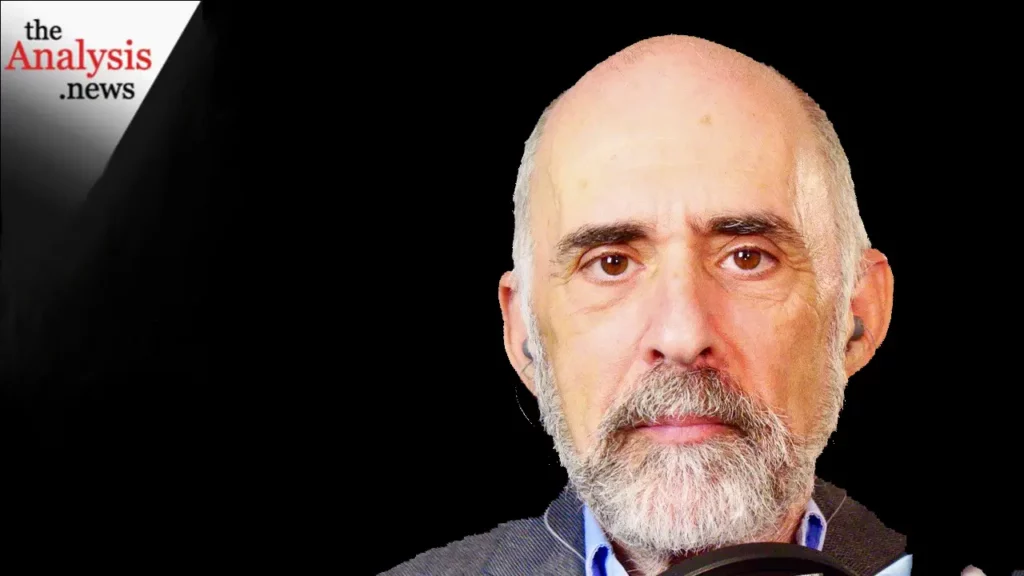
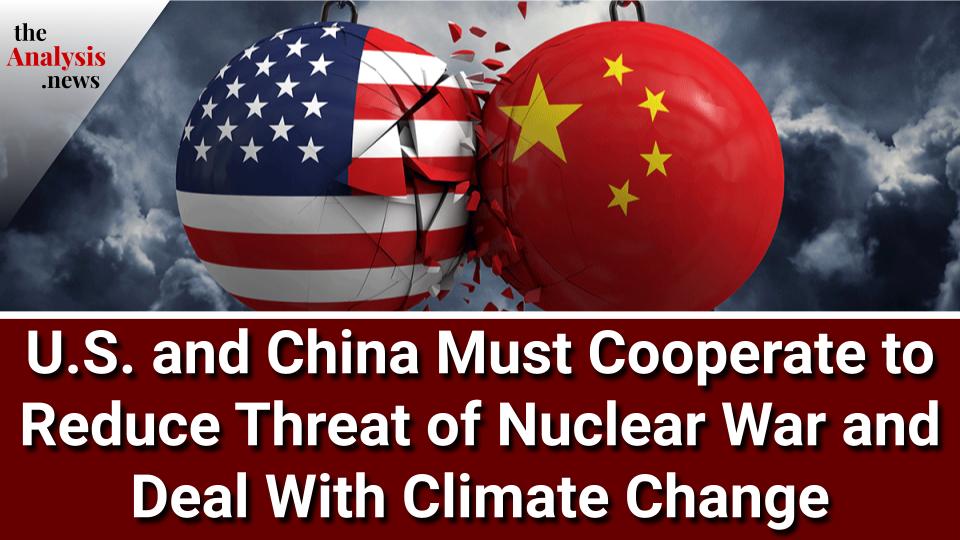
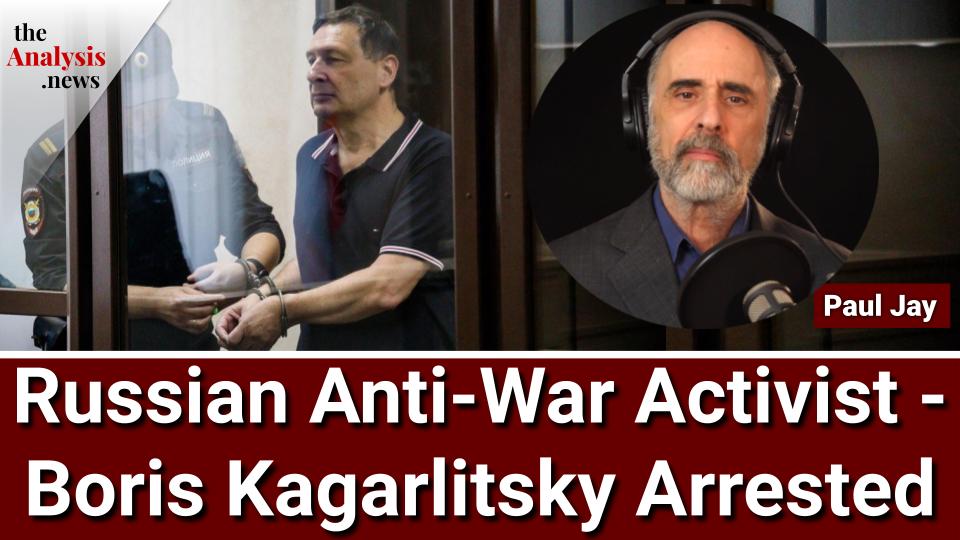
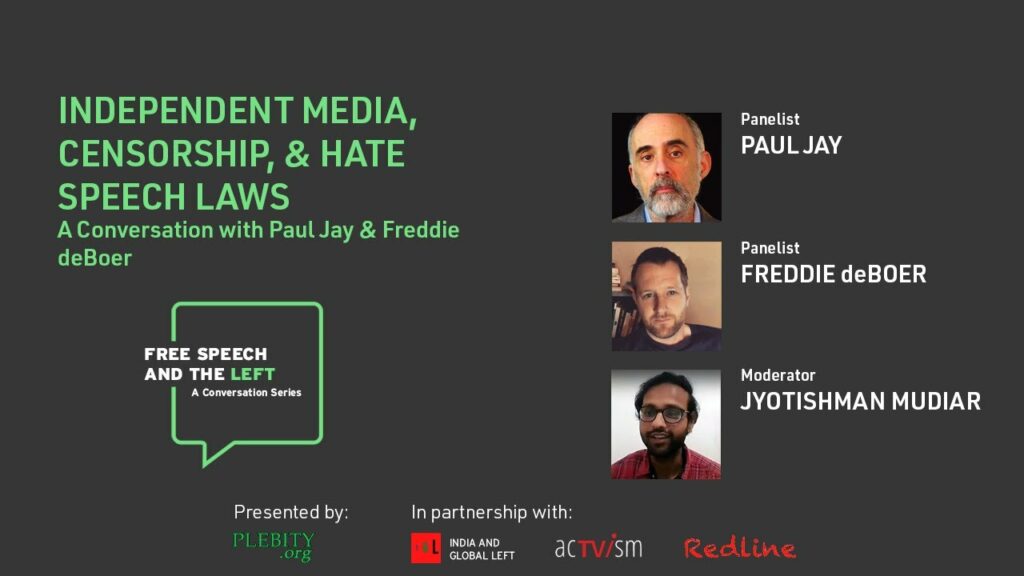
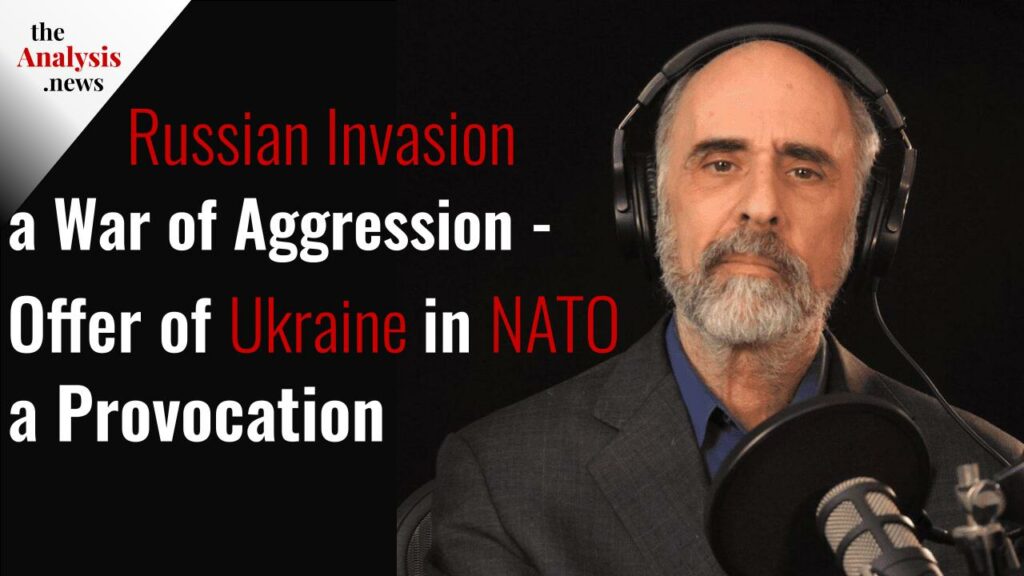
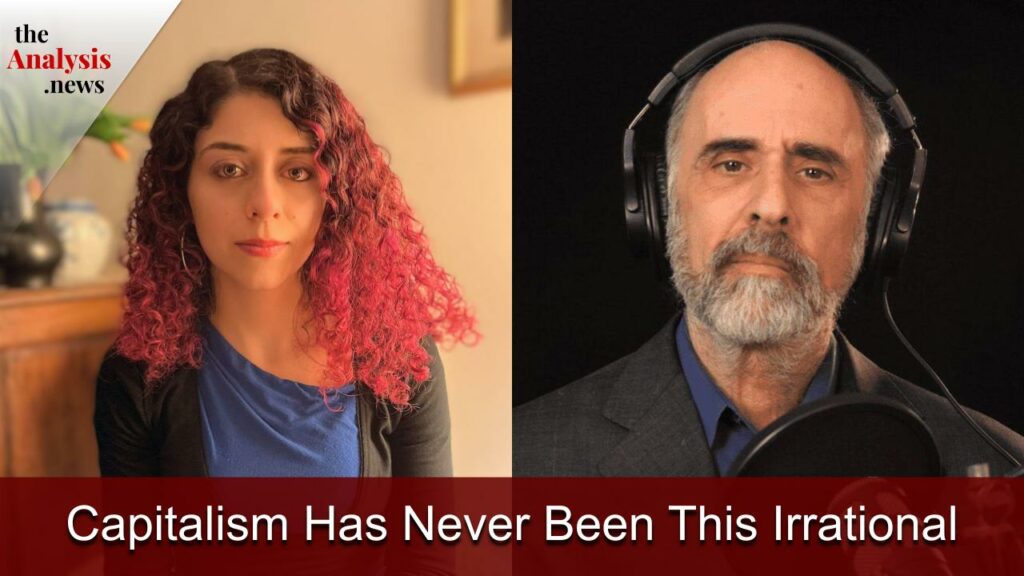
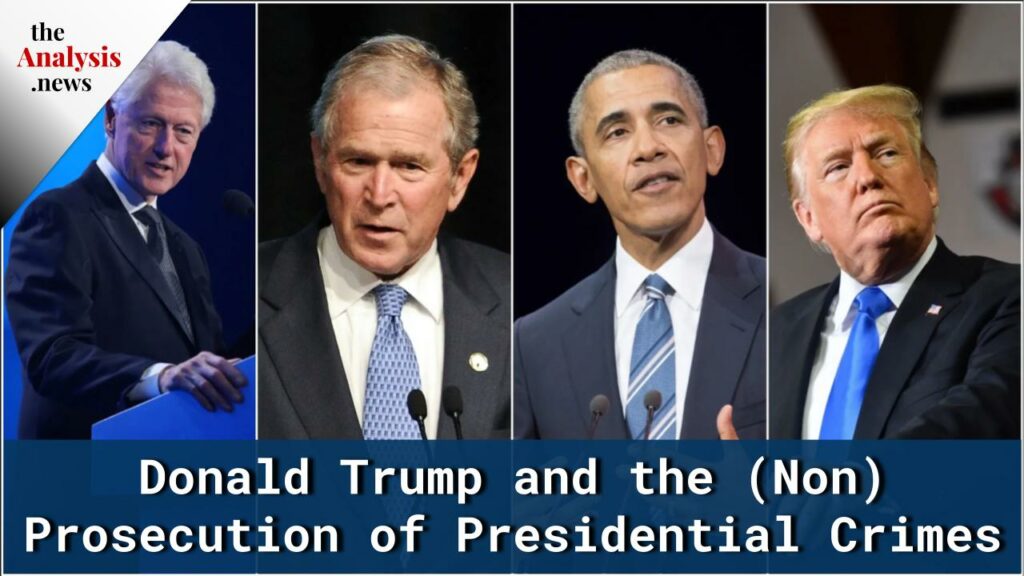
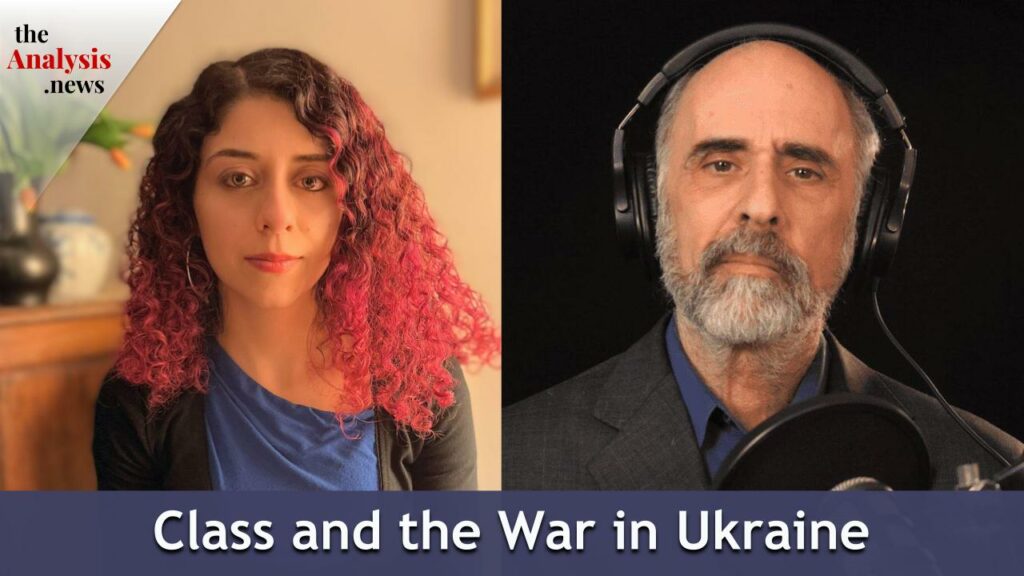
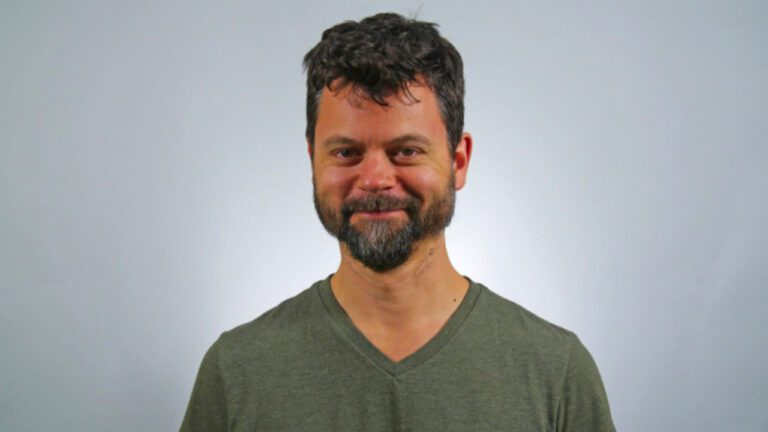
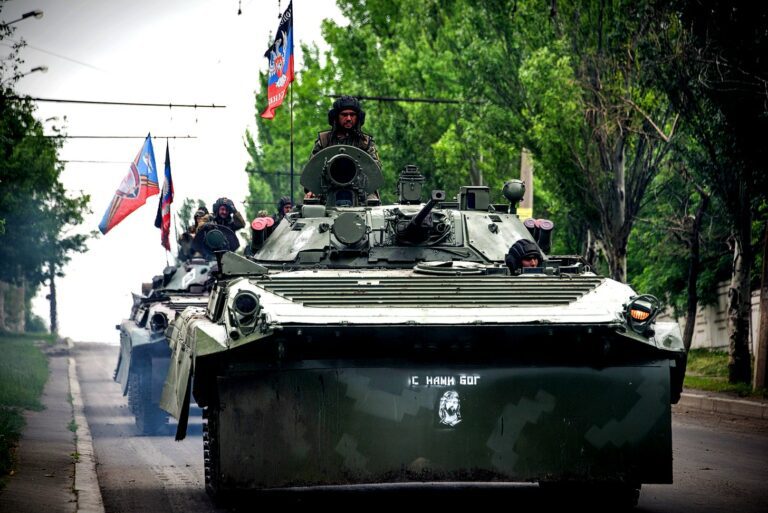

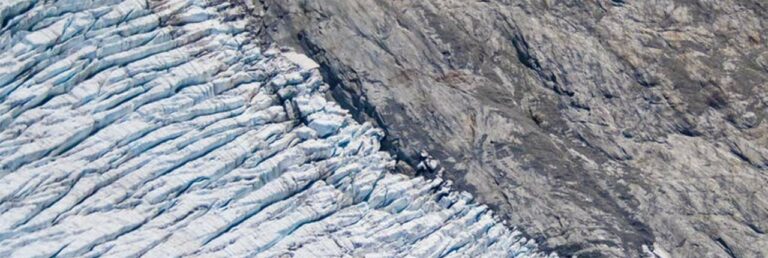
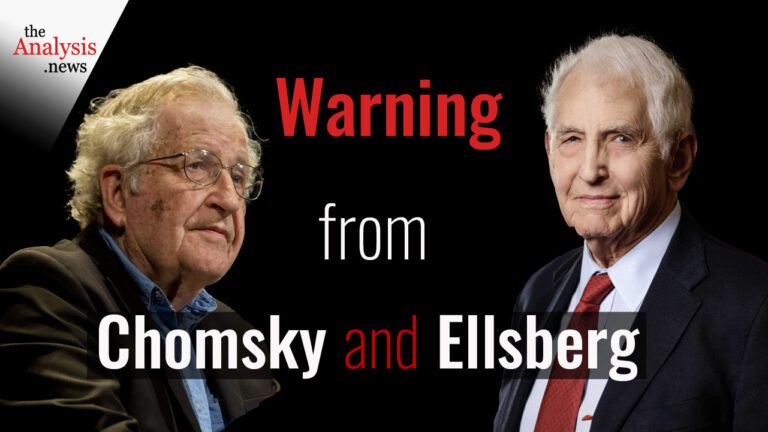

We need to revolt against capitalism before having more kids.
Capitalism has turned to Barbarism, needs to be brought to end before destroying the entire being.
I am not sure how strong communists are to topple Russian current government and stablish a socialist system. You know, i am dreaming.
Our current goal needs to be to overthrow capitalism, stablish socialism. eradicate poverty. then you can have as many kids as you like to give them a bright future as humans.
wouldn’t that be lovely.
Paul, I wanted to add to my earlier comment:
My bias in looking at the Ukraine war is that Russia (and its ally China) have made a joint statement that they support international law and UN
conventions as opposed to the West and its “rules based order”. The big picture for me is that the opposition of Russia and China to the US is allowing
nations in South America, the Middle East, Africa and Asia to be more confident in challenging American hegemony, neoliberalism, and the pain successive American govts have caused their countries.
I interpret your view of the Ukraine war, from a number of your interviews, in being pro-Ukrainian like much of mainstream media, and condemning the Russian invasion, without looking at voices from Russia or the Donbas region that are critical of the US and the campaign of terror from Ukrainian nationalists (Nazis).
To me, the bigger picture you care about is that the invasion is wrong, unconditionally, and that the greatest danger is the nuclear escalation between US and Russia.
….
I agree with you that the danger from nuclear escalation, and especially climate change in the long-term, are consequences that will dominate all other considerations. However, like the Buddhist proverb of blind sages touching different parts of an elephant without knowing what it is, the reason I visit your website is the hope of seeing the whole elephant. When I see a glaring bias in your coverage of an issue, I have to ask why.
Ultimately, journalism can take on church-like qualities, if independent journalists like yourself or on Substack, for example, have a base of reader support that shares their bias. Why not feature activists from the Donbas, or be willing to discuss the Ukraine war and its consequences with military and geo-political analysts like Col Douglas Macgregor, Scott Ritter, Alexander Mercouris from theDuran, etc, even if it means pointing out any biases they have, as well?
I’ll just finish by saying I won’t try to pose this question again, but hope you are willing to examine your bias, and that you can respond to this question here as you have done for others in previous articles.
Hi Paul,
I wanted to try again in leaving a comment, and hopefully you can publish it.
Here is a quote, from Scott Ritter (former UN weapons inspector), on the situation in Ukraine:
(for full article see: https://consortiumnews.com/2022/06/25/scott-ritter-the-fantasy-of-fanaticism/)
“To recap — the secretary general of the trans-Atlantic alliance responsible for pushing Ukraine into its current conflict with Russia is now proposing that Ukraine be willing to accept the permanent loss of sovereign territory because NATO miscalculated and Russia —instead of being humiliated on the field of battle and crushed economically — is winning on both fronts.
Decisively.”
I am not sure why you do not feature guests that are more critical of the west, and more objective in terms of evaluating the US, Europe and Russia. I’ve asked before for an interview with Peter Lavelle at RT (he is an American journalist and expat), and hope you will consider talking with him about Ukraine.